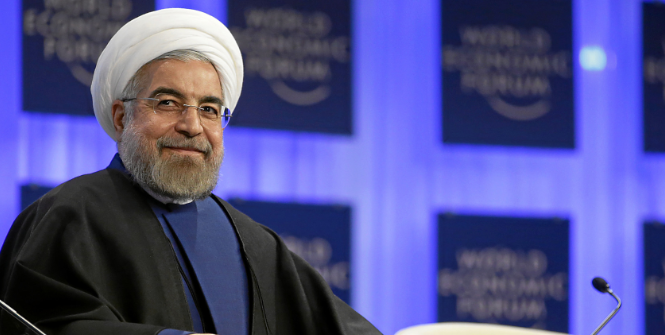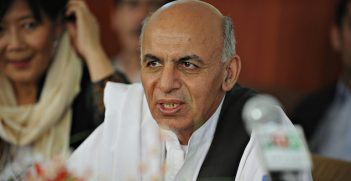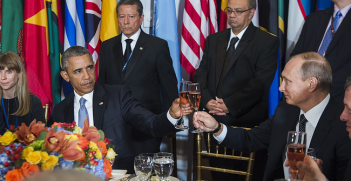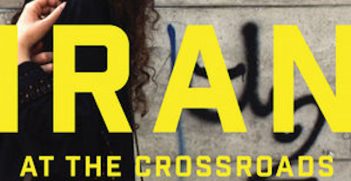Iran's Elections: A Shift of Support to Reformists and Moderates

Although the outcome of Iran’s parliamentary elections held on 26 February will not be finalised until later next month, the results thus far have been telling. Based on the count of 222 out of 290 seats counted to date, there will be a significant shift away from the conservatives in support of the reformists and moderates. The standout electorate was Tehran where the reformists won all 30 seats. Previously the conservatives held 28, and reformists only two. However, the conservatives firmly held on to some of their traditional strongholds, including Qom, the centre of Shiite theology just south of Tehran.
What the results to date tell us is that most members of the Iranian public have signalled to Supreme Leader Ayatollah Ali Khamenei and his leadership team that they support the policies of President Hassan Rouhani. In particular, this includes the need for the economic development that will flow from the recent lifting of international sanctions and more opening up of Iranian society to the West.
It is expected that this shift will be reflected again in April when there will be a re-run of voting to fill 68 seats that were not filled during the first round. This is because no contestant won the minimum quota of a third of the votes cast, which is required for election.
Members of parliament in Iran are elected for a four year term. An estimated 53 million citizens, both male and female, were eligible to vote. Some 32 million did so at more than 52,000 voting centres nationwide. Another significant factor is that some 60% of the population is under 30 years of age. The vote therefore reflects to an important degree the aspirations of the nation’s well-educated and industrious youth who are keen for the greater employment opportunities that economic development will bring. They are also keen for more relaxation of social norms, including some defined by religion; a significant increase in Western tourists could also be a driver for this.
However, it would be a mistake to assume that final outcomes will result in any major changes to government policy, at least in the short term. Changes will occur, but are more likely to “evolve” and be generally moderate rather than rushed or bold. There are reasons for this.
The principal reason is that Iran’s parliament, or Majles, is constitutionally an “Islamic Consultative Assembly” only. Iran is a theocracy, a ‘pro-democracy’ hybrid system where ultimate power for the approval of domestic and foreign policy and legislation rests with the Supreme Leader. Importantly, however, parliament provides a key venue that enables people’s wishes to be expressed, heard and taken into account by the top clerical leaders. There are also two institutions in particular that impose checks and balances between the Supreme Leader and parliament. These generally favour moderation.
The first institution is the 12 member Guardian Council which is constitutionally empowered to review, approve or reject all parliamentary candidates and all legislation. This Council comprises six “jurists” who are directly appointed by the Supreme Leader. The other half of the Council is the six specialists in Islamic law appointed by the head of the Supreme Court, himself a Supreme Leader appointee.
Reportedly some 12,000 people nominated to contest last month’s elections, but more than 5,000 of these were rejected by the Council. While some allege the Council is biased towards conservatives, this vetting process does cull out political radicals, non-conformists and the like. Thus it tends to set compliance boundaries for political behaviour. Where the Council has rejected legislation, in most cases the reasons given were that it was deemed contrary to Islamic Law.
The second institution is the Expediency Council established in 2002. Its primary role is to mediate disputes between the Guardian Council and parliament. An important secondary role is to provide specific and general advice on policy matters to the Supreme Leader. This Council comprises 38 members from across the reformist-conservative spectrum, all appointed by the Supreme Leader for a five year period. A further six members of the Guardian Council also serve in an ex-officio capacity where mediation about legislation is involved. The chair of the current Council is Hashemi Rafsanjani, a former president from 1989-2005 and reformist/moderate. President Rouhani was also a member of the council until he became president in 2013. If mediation struggles to reach agreement, the wishes of the Supreme Leader will prevail.
Another reason for moderation is that there are no political parties as such in Iran, and therefore elected members are not bound by traditional loyalty to party policies. Parliamentary members and candidates form alliances or coalitions around themes and issues. During last month’s election, these camps were identified as reformist, moderate and conservative. As a guide, reformists are more progressive than moderates, the moderates tend to be independents in the middle ground between reformists and conservatives and the conservatives are often referred to as being clerical hardliners or their followers. How these members ultimately line up will not be known until June when the new parliament meets, appointments are made to the various parliamentary committees and different issues are raised and voted on. There are many subtleties involved and it is not uncommon for alliances to change on particular issues.
Notwithstanding these cheques and balances, the electoral shift to a more progressive Iran is assessed as sustainable given the foreseeable domestic and international environment as they affect Iran.
Concurrent with the parliamentary elections, elections were also held for membership of the Assembly of Experts. This assembly comprises 88 members who serve an 8 year term. Its principal role is to supervise, dismiss if appropriate and appoint a new Supreme Leader should the position become vacant. All candidates are required to be experts in Islamic jurisprudence. This expertise is reviewed by the Guardian Council, which reportedly disqualified some 80% of those who sought pre-selection for last month’s elections. According to reports, a majority of those elected were reformists and moderates, reflecting a shift similar to that for the parliamentary elections. Given the age and health of the present Supreme Leader (he is 76 and reports suggest he may have prostate cancer), the newly-elected Assembly will either select his replacement or short-list his heir-apparent during its term.
Ian Dudgeon is an AIIA Presidential Associate and former ACT Branch President. In 2015 he completed rounds of talks in Iran and Australia with senior officials for his report Iran Regional Threats and Shiite Sunni Challenges.





